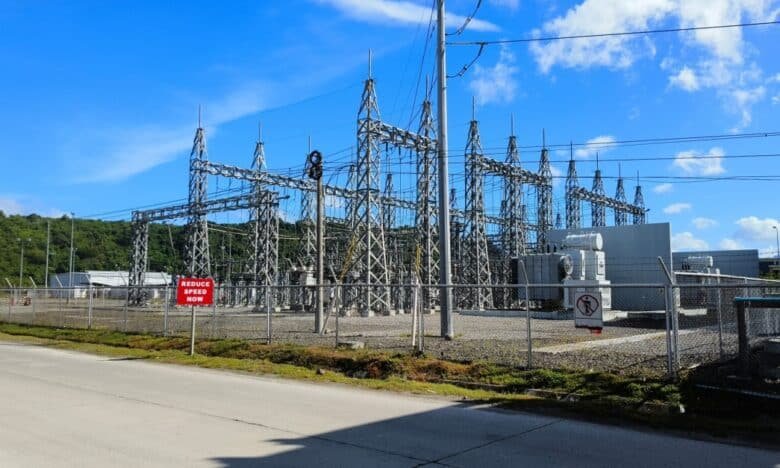
Batangas Voters See Energy Crisis as Deciding Factor in Election
- May 8, 2025
The May 12 local and national elections in Batangas are highlighting power stability as a major issue in this vital industrial and economic hub.
The push for change is especially strong among Batangas I Electric Cooperative (Batelec 1) consumers, with many expressing readiness to support leaders who focus on fixing the province’s power woes.
According to a new Capstone-Intel survey, recurring electricity interruptions in Batangas are pushing residents to support candidates who prioritize solving the province’s energy problems. Unstable service from BATELEC I and II is now influencing voter preferences ahead of the elections.
The study interviewed 1,200 Batangas residents across 34 localities and found that 62% face one to two power outages monthly, while some report up to ten. Batelec 2 users bear the brunt, with 93% experiencing repeated blackouts, compared to 81% under Batelec 1. Most outages last one to three hours—far more frequent than in areas served by other providers.
Dr. Guido David, Chief Data Scientist of Capstone-Intel, emphasized that the survey serves as a crucial wake-up call not only for power providers but also for political leaders. “The people of Batangas are demanding dependable power, and they’re paying attention to who delivers it,” he said.
(Also read: Securing a Stable Power Supply Crucial for Lowering Electricity Prices)
Reliable power as a key campaign issue
Last February, senatorial candidates from Alyansa para sa Bagong Pilipinas proposed solutions to Mindanao’s power issues.
House Deputy Majority Leader Erwin Tulfo, during the Alyansa slate’s press conference in Davao del Norte, urged a thorough evaluation of electric cooperatives’ (ECs) performance. He advocated revoking the franchises of underperforming cooperatives and replacing them with energy firms capable of providing reliable electricity.
Tulfo mentioned his proposal in Congress, calling for a review of all cooperative franchises. He argued that underperforming ECs should have their licenses revoked and reassigned to power companies capable of delivering reliable service, stressing that it is the consumers who ultimately bear the burden of unreliable electricity.
He stated in Filipino, “The problem is, unfortunately, these cooperatives have connections in the government. They are being protected and supported.”
The participation of private energy companies, according to Senate Majority Leader Francis Tolentino, is crucial in improving power access to remote regions. He noted Davao Light’s expansion into previously neglected areas as a primary example of how private initiatives can transform the energy supply in these areas.
In April, House Bill 11072, which expands Davao Light’s franchise to areas currently served by the Northern Davao Electric Cooperative (Nordeco), lapsed into law. This occurred when the bill remained unsigned by the president for 30 days, as mandated by the Philippine Constitution.
Nordeco opposed the bill, raising concerns about potential constitutional issues and its impact on electricity rates. The cooperative warned that the expansion could lead to higher costs for consumers in the affected regions.
However, Senator Miguel Zubiri countered Nordeco’s concerns, highlighting that in December 2024, Nordeco’s rate was P12.56 per kilowatt-hour (kWh), compared to Davao Light’s P9.21. Similarly, in November, Nordeco’s rate was P12.68, while Davao Light’s was P9.11. Zubiri noted that Davao Light consistently offers lower rates, stating his priority is ensuring the best power rates and services for the Davao Region.
Meanwhile, Meralco is actively exploring a partnership with BATELEC I and II to address the province’s ongoing power reliability issues.
Meralco’s Executive Vice President and Chief Operating Officer, Ronnie Aperocho, expressed interest in assisting Batangas by improving service reliability. “In fact, we have received a request from the local government, even from the customers themselves,” he explained.
He mentioned that Meralco is open to various collaboration models, including joint ventures, and is committed to coordinating with the National Electrification Administration (NEA) and other relevant entities to ensure compliance with regulations.
The need for stable energy sources
While renewable energy projects feature prominently in many campaigns, energy experts argue that these cannot yet match coal in providing reliable baseload power.
“Intermittent wind-solar cannot and will not be able to replace or substitute coal generation unless we embrace and endure large-scale daily blackout,” stated Bienvenido S. Oplas, Jr., president of Minimal Government Thinkers.
Terry L. Ridon, a public analyst and convenor of InfraWatch PH, argued that developing nations like the Philippines are not obligated to make the same binding commitments to renewable energy and climate goals as industrialized countries.
He stressed, “At our current stage of economic development and limited land areas for food production, the nation cannot yet dispense with baseload technologies such as coal, oil, and gas, without incurring significant energy costs detrimental to the public.”
Cynthia Alabanza, spokesperson for the National Grid Corporation of the Philippines (NGCP), explained that from a grid management standpoint, non-intermittent energy sources are crucial for consistent electricity supply.
“Although we encourage that because it’s clean energy, solar power, by nature, has a relatively low capacity factor,” she said. “This is because there’s no solar energy at night and when it’s cloudy, (so) the output drops.”
During his campaign, former senator Manny Pacquiao pledged to advocate for the revival and creation of nuclear power plants, pointing to the Bataan Nuclear Power Plant as a model.
Nuclear energy, according to the Department of Science and Technology-Philippine Nuclear Research Institute (DOST-PNRI) Director Carlo Arcilla, could lower electricity rates and provide a stable power source.
He also said nuclear power offers one of the most affordable electricity options. Increasing its share in the energy mix would help lower overall costs, though the aim is not to replace all energy sources, but to use nuclear for baseload power.
Senator Alan Peter Cayetano highlighted nuclear energy’s potential to address key challenges like healthcare, agriculture, energy, and climate change during his speech on the Philippine National Nuclear Energy Safety Act (Senate Bill No. 2899).
He stressed the need for the bill to establish the Philippine Atomic Energy Regulatory Authority (PhilATOM) to ensure safety and modernize nuclear laws in line with international standards.
(Also read: Meralco and French Firm Collab to Explore Nuclear Energy)
Why stable energy matters
As the energy crisis continues to impact daily life, voters are increasingly prioritizing stable energy solutions when choosing candidates. With frequent power outages and rising electricity costs, citizens seek leaders who can deliver reliable, affordable power.
Energy platforms have become crucial in this election, with the promise of stable power seen as essential not just for economic growth, but for the well-being of communities.
“Reliable electricity is not just a convenience—it’s a prerequisite for economic growth and quality of life,” Dr. David emphasized.
Sources:
https://powerphilippines.com/batangas-voters-signal-power-crisis-as-election-dealbreaker/
https://www.sunstar.com.ph/davao/davao-light-franchise-expansion-becomes-law
https://business.inquirer.net/504104/nordeco-opposes-house-bill-expanding-davao-lights-coverage-area
https://businessmirror.com.ph/2025/05/01/meralco-keen-on-helping-batangas-ecs
https://www.bworldonline.com/corporate/2024/01/29/571634/renewables-unlikely-to-top-coal-in-phl-energy-by-2025-analysts



